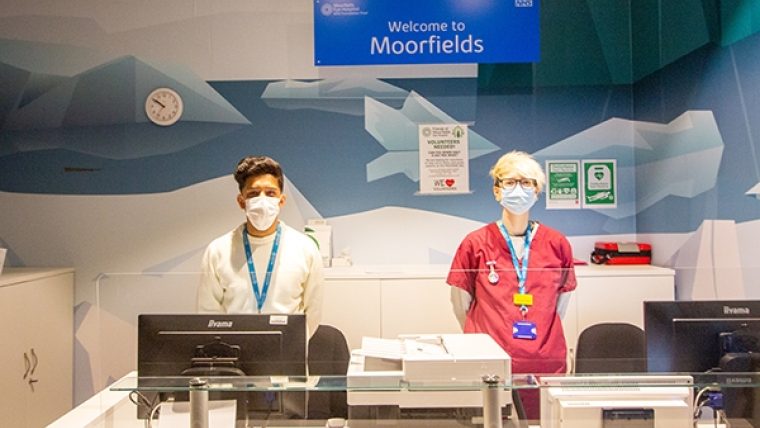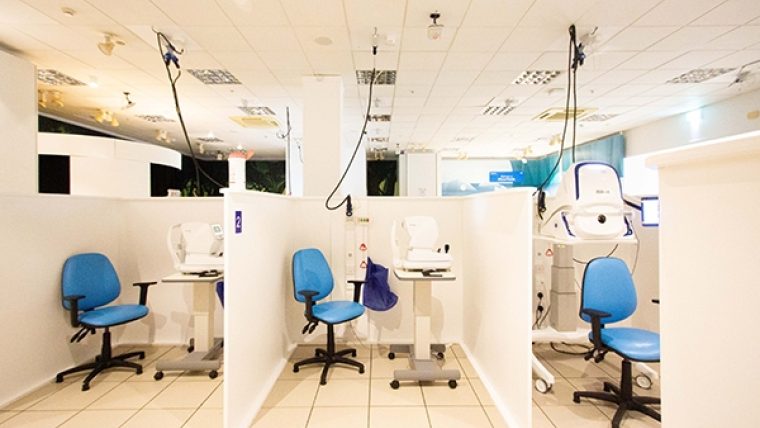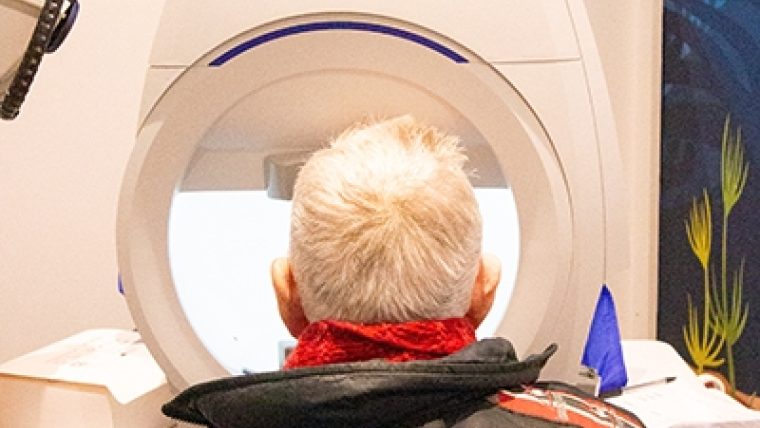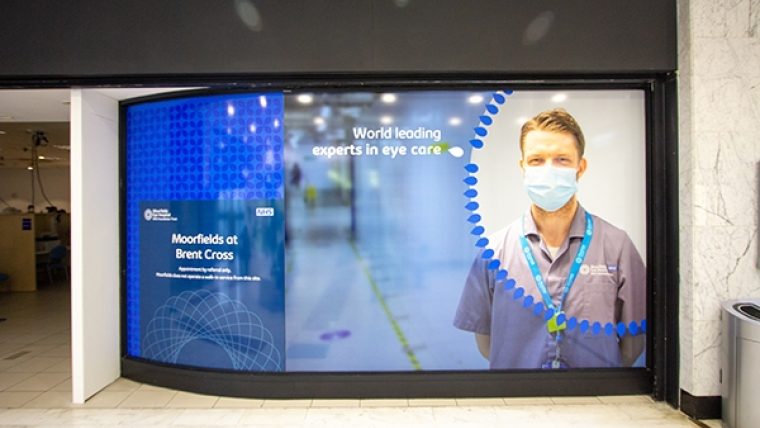Transforming future service delivery
Professor Paul Foster | GR001387
22 March 2022

We’re funding critical research looking at the design of diagnostic hubs to transform future delivery of eye services and meet a growing demand for eye care. A multi-disciplinary team will analyse movement to inform efficient and safe spaces in high volume patient settings.
The challenge
Even before the pressures of the Covid-19 pandemic, there was a service capacity deficit in NHS hospital eye care. With an ageing population, the number of people in the UK living with sight loss is going to increase dramatically in the future.
From the start of the pandemic Moorfields adapted quickly and explored innovative approaches. It introduced new diagnostic hubs in the community, including in Hoxton, East London.
Professor Paul Foster, consultant ophthalmologist at Moorfields Eye Hospital and professor of ophthalmic epidemiology and glaucoma studies at UCL, and his multi-disciplinary team have converted a disused retail unit in Brent Cross shopping centre into a major new facility.
This spacious diagnostic hub monitors patients with chronic eye disease in an easily accessible location.
Initial funding for HERCULES (Healthcare Exemplar for Recovery from Covid-19 by Use of Linear Examination Systems) - this ambitious clinical innovation setting, has been provided by the NIHR Biomedical Research Centre (BRC) at Moorfields Eye Hospital and the UCL Institute of Ophthalmology.

Finding a solution
Diagnostic hubs take patients through a series of eye tests, maximised for time and space efficiency, which are then individually reviewed online. This frees up time for consultants to spend with patients who need more specialist care.
We’re funding research to be carried out as part of HERCULES, with generous support from The Miss Barbara Mary Wilmot Discretionary Trust. The research will gather high quality data in a short, 12 month time period.
The results will underpin and strengthen applications for larger grant funding to take the findings onto the crucial next stage.
The intensive multi-disciplinary research involves architects, engineers and mathematicians. This world-class working group is creating a valuable, precious data resource.
The aim of the project is to understand the factors which promote efficiency of movement in a diagnostic hub. It will directly measure assessment times together with the movement patterns of patients and staff. This includes testing new configurations of equipment and exploring the implications on the safety of staff and patients.
We believe the application of advanced spatial analysis, mathematical modelling of flow and capacity of the clinic system, and air quality and ventilation flow measures, have never before been used to examine the optimal design and configuration of outpatient clinics.
Professor Paul Foster

The potential
The aim of the project is to understand the factors which promote efficiency of movement in a diagnostic hub. It will directly measure assessment times together with the movement patterns of patients and staff. This includes testing new configurations of equipment and exploring the implications for the safety of staff and patients.
This research has the potential to inform and transform clinical service delivery to help minimise risk from airborne and surface transmissible viruses and other pathogens.
It aims to provide a model for the future delivery of high capacity, safe, user-friendly eye care such as designed in Oriel, Moorfields’ new home - the centre for advancing eye health opening in 2026.
Ultimately, the data and knowledge will shape the design of diagnostic hubs and hospitals for ophthalmology and other outpatient NHS activity in the coming years.


Our work in the diagnostic hub will set standards for a novel model of clinical care, the principles of which will be applicable to many other high volume NHS outpatient settings such as orthopaedics and cardiology. This research plays an important part in future delivery.
Professor Paul Foster
Funded by Moorfields Eye Charity, with generous philanthropic support from The Miss Barbara Mary Wilmot Discretionary Trust who are supporting this exciting research.
Project Details
Springboard award
Professor Paul Foster
Age related macular degeneration
£155,020
January 2022
GR001387

